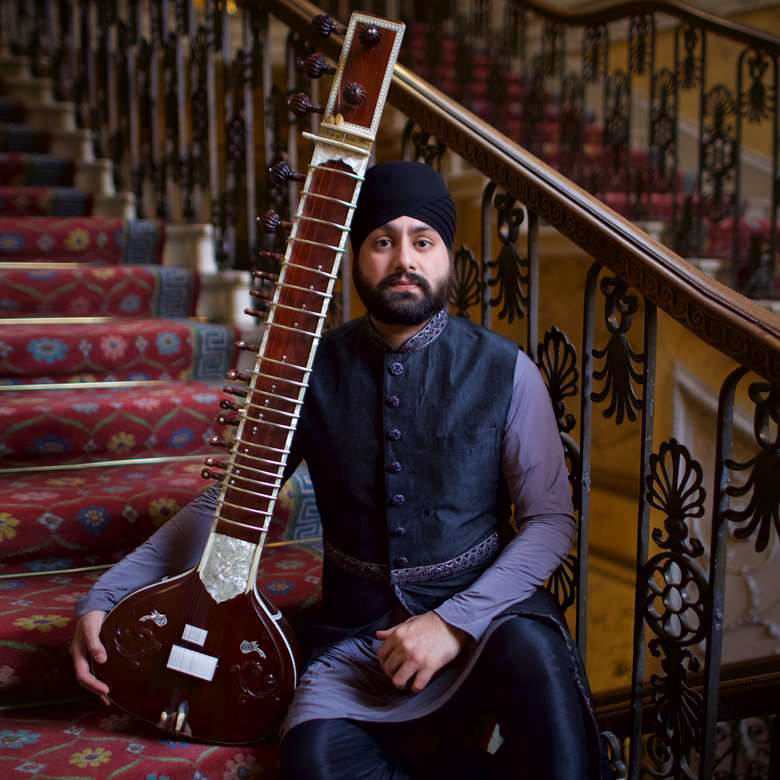'I'm a firm believer in hard work' | Jasdeep Singh Degun Interview
TE
Monday, April 8, 2024
Gramophone meets RPS Award-winner Jasdeep Singh Degun

Photo Credit: Robert Leslie
Q. Congratulations on winning the RPS instrumentalist award - How does it feel to be the first sitar player to win the award?
A. It’s definitely a testament to all the people that have made it happen. My teacher Ustad Dharambir Singh MBE was such a pioneering vision in the generation before me, he set up a lot of infrastructure in this country for Indian classical music to thrive, and I think part of the reason I was even considered for the RPS Award was because of my opera Orpheus which stemmed from a collaboration with Opera North and South Asian Arts-uk, an organisation that my teacher founded. I grew up taking part in so many different projects with classical musicians that I see myself as very much part of the classical music fraternity of this country.
Q. You recorded Anomaly at The Sanctuary in Battersea which has hosted some impressive artists in the past - what was the recording process like? Does the improvisatory nature of your music make it difficult to decide on a ‘perfect take’ to put on a record?
A. There are multiple strands to my performance life. Any straight Indian classical music I play is improvised on the spot, usually just with me and a tabla player, and that’s usually 90% improvisation. For Anomaly, I called upon colleagues; string ensembles and other Indian classical musicians to essentially make what I wanted to make without any rules, and that music is all fixed, so much less improvisation is involved. In anything I do, there are moments of improvisation, because I can’t help myself!
Q. Peter Gabriel of Real World is known for bringing music from different cultures under the western gaze - what has it been like working with the team at Real World?
A. I finished my album and started pitching it to labels. A friend of mine plays tennis with Peter Gabriel and he kindly sent my album to him, and fortunately Peter loved it. There were other labels interested but I felt particularly supported by the team at Real World, they’re good people and I really felt that they put the music first.
Q. I’ve read that you didn’t grow up in a musical family. How does that affect your thoughts on musical skill/ability being nature vs nurture?
A. My family aren’t musicians but they’re not un-musical, for instance everybody sings ‘happy birthday’ in tune! My parents love music and it was always playing in the house growing up, but just like any musician I had to put the hours in in order to get better, so in that way I would argue that it’s nurture with the help of nature. Of course you need musical talent, but you have to put in loads of work to be one of the best. I’m a firm believer in hard work, which is something I’ve taken from my parents who are incredibly hard working in their respective fields.
Q. What are you listening to at the moment?
A. My default is Indian classical music but it all depends what mood I’m in. If I have a concert coming up in which I’m performing a specific raag, the melodic framework an Indian classical concert is based on, I’ll try to immerse myself in as many recordings of that raag as I can, whether it’s vocalists, flute players or sitar players, just to get myself into that musical world. I like all types of music, I have a playlist affectionately titled ‘normal people music’ which is a lot of things like Mumford & Sons, Maroon 5, Ed Sheeran, Oasis but I have to be in a very specific mood for that!
Q. What are your plans for 2024?
A. I’ve just come off tour and I’ll be taking a break over summer before I begin my big concert tour starting in September. The last couple of years have been incredibly busy but I’m looking forward to starting to work on my next album which will be a sequel to Anomaly, as it were.







